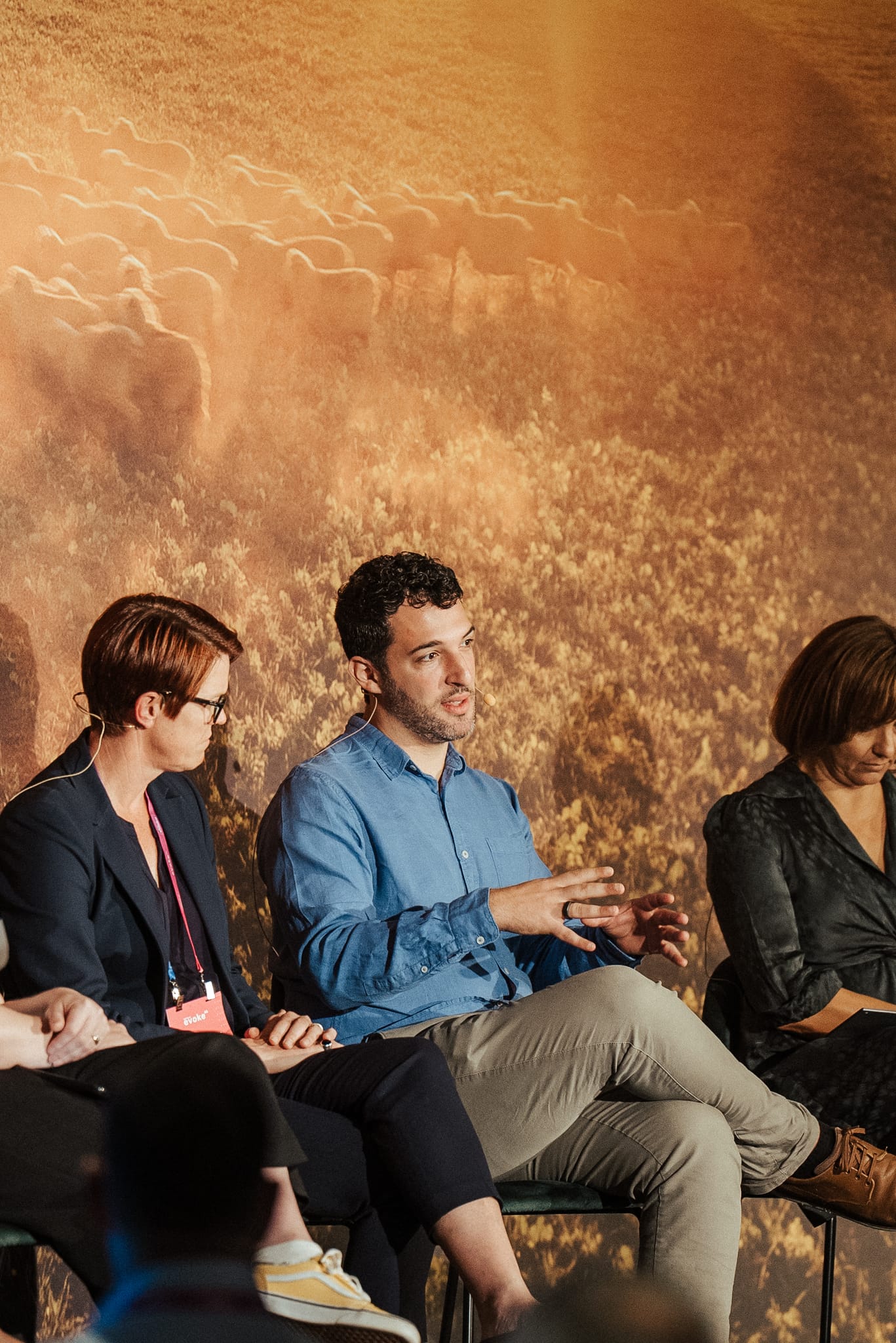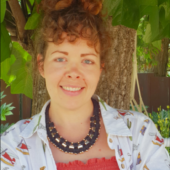Cellular ag pioneer, Vow, makes history as the first Australian company to launch a cultured meat product
The self-described ‘spaceship of the cultured meat industry,’ Australia’s Vow has become only the third company in the world to bring a cell-based meat product to market. Its cultured quail has received the green light from Singapore’s food regulator, whetting the appetite of the world’s culinary elite.
Vow Founder and CEO George Peppou explains how the company based in Alexandria, New South Wales, went from founding to first sales in just five years – an unrivalled achievement in a segment where many spaceships crash back to earth.
 Vow Founder and CEO, George Peppou.
Vow Founder and CEO, George Peppou.
Ever eaten cell-based meat? Unless you’ve hunted it down in Singapore or the USA, chances are the answer is no. Because despite startups, investors, and governments together investing billions in accelerating cultured meat’s path to market, the reality is, most companies fail.
Which makes Vow – a cellular ag startup – all the more impressive. Vow has recently become only the third company in the world to sell meat made from cultured cells. Approval came from the Singapore Food Agency for cultivated quail made from the rare Japanese species, Coturnix japonica.
Remembering this as the company which once created a global stir after creating meatballs with woolly mammoth DNA, it’s perhaps not surprising that Vow is pushing the boundaries in marketing their first (commercial) product.
They’ve called it ‘Quailia: a new animal – made to be utterly delicious.’
Marketed under Vow’s consumer brand, Forged, Quailia is a made-up animal, made entirely of their cultivated quail cell parfait.
Vow Founder and CEO, George Peppou, explained, “Quailia is a fictional animal – calling it a new species is really just a metaphor for what we’re trying to achieve. To deliver food that is entirely different to anything that you’ve had before, and food that is entirely distinct from anything you can find in nature.”
Imaginative, unconventional approach to food innovation
Marketing a ‘new species’ in a luxury product format like parfait seems an unconventional path to mass market success. But Vow is playing the long game.
“If you look at the way new things have been introduced to our diets – whether they’re new cuts of existing meat, like pork belly, or new ways of eating protein, like sashimi, these things all start in high-end restaurants.
And those establishments – renowned for valuing creativity, differentiation, and new experiences – start a cascade of influence on society’s food behaviours.
“Luxury venues inspire mid-range restaurants, which in turn inspire quick-service restaurants, which in turn inspire supermarkets to put certain items on their shelves,” George said.
RELATED: Feeding the world one gene at a time with Tress Walmsley and Ponsi Trivisvavet
Much like fashion trends originating on a catwalk before trickling down to high street brands then chain stores – this cascade to mass market adoption is a well-worn path. But unlike fast fashion, where the turnaround from concept to clothing can be weeks, food trends typically take a decade to filter down.

George Peppou, Co-Founder and CEO Vow Foods at evokeAG. 2023.
That timing works for Vow, though. While the company is actively scaling up production facilities, George said they’re still about a decade away from producing cultured meat products at mass market volumes and price points.
Refusing to play the imitation game
With the global animal protein market growing at 1% per year, with expected volumes tipped to reach half a billion tonnes by 2030, most of Vow’s competitors are seeking to nab their share by churning out lab-grown versions of the meats we know and love.
RELATED: Expert panel shows opportunities for SynBio in Australian agrifood sector
But a cultured ribeye is not on George’s development roadmap.
“That replication idea has never been a compelling value proposition to me. Nor is it a compelling food experience,” he said.
“I love eating meat. I’ve eaten steak hundreds of times, and that process has trained my brain very deeply to understand what is steak, and what isn’t. I’m not going to be tricked into thinking something made in a bioreactor is a steak, let alone try to trick anyone else.
Vow’s ‘new species’ concept isn’t a gimmick. It’s a deliberate strategy to attract interest from people who like eating meat, and are captivated by the idea of something new, distinctive, and unique from anything nature has created.
From founding to food product – fast
Vow has spent five years searching for a totally unique cellular food. They’ve explored more than 50 species, including rabbit, water buffalo, and alpaca – working closely with the world’s top chefs in their hunt to spark new culinary experiences and a new food movement.
“Some chefs have tasted up to 30 prototypes of our parfait, and their feedback has really shaped the product into something that is versatile, with a depth and subtlety of flavour, and texture like nothing you’ve ever eaten before,” said George.
And he is delighted that Forged Parfait is being used exactly as he hoped.
“Some chefs are incorporating it into their existing dishes. Some are developing new dishes around it,” George said.
“And some are serving it with steak, which is great, because it signals very clearly that this is not an alternative to meat; it’s an addition to your diet as a meat eater.
While their focus on novel, luxury products is unique in a cultured meat segment where replication reigns, it is paying dividends. “Because we have a different set of technical requirements and constraints, we’re able to execute really quickly,” explained George.
“We have a product in market in around half the time it took our competitors. And with less than 10% of the capital raised by those companies.”
Will we see cultured quail on Australian menus this summer?
Australia’s food regulator, Food Standards Australia New Zealand (FSANZ), published its initial approval for Vow’s cultured quail in December 2023. But diners will have to wait a while to try Forged Parfait in Vow’s home country.
“Because ours was the first cultured meat application to be accepted by FSANZ, we spent quite a bit of time working with their team so they could really understand how it’s produced,” said George.
He added that, with FSANZ being a multinational statutory body, there are some additional bureaucratic hurdles which an applicant must overcome – including food ministers’ sign off on the legislative change needed to allow cultured meat as a novel food.
Another important local hurdle, as distinct from Singapore’s process, is public consultation. The first of two public feedback sessions is already completed, triggering what George called, “Valid clarifying questions. We’ve since spent lots of time with the food regulator, ensuring that we’re providing thorough answers to all those questions.”
“But there was nothing surprising or unexpected or new to us, which I think goes to the thoroughness of our application, and the thoroughness of the food regulator’s initial assessment.”
George is hopeful that FSANZ will conclude its approval process by the end of 2024 – just in time for Australian diners to while away hot summer nights in the country’s finest restaurants, enjoying the rich umami flavour, and weightless melt-in-your-mouth quality of the utterly unique Forged Parfait.
Have you got a trip to Singapore in your itinerary? Book here to dive into a dining experience like no other.
Sign up to hear more from the thought leaders and change makers about the role of agrifood tech innovation in shaping a sustainable future and receive updates on evokeAG. 2025 in Brisbane, Queensland on 18-19 February.
